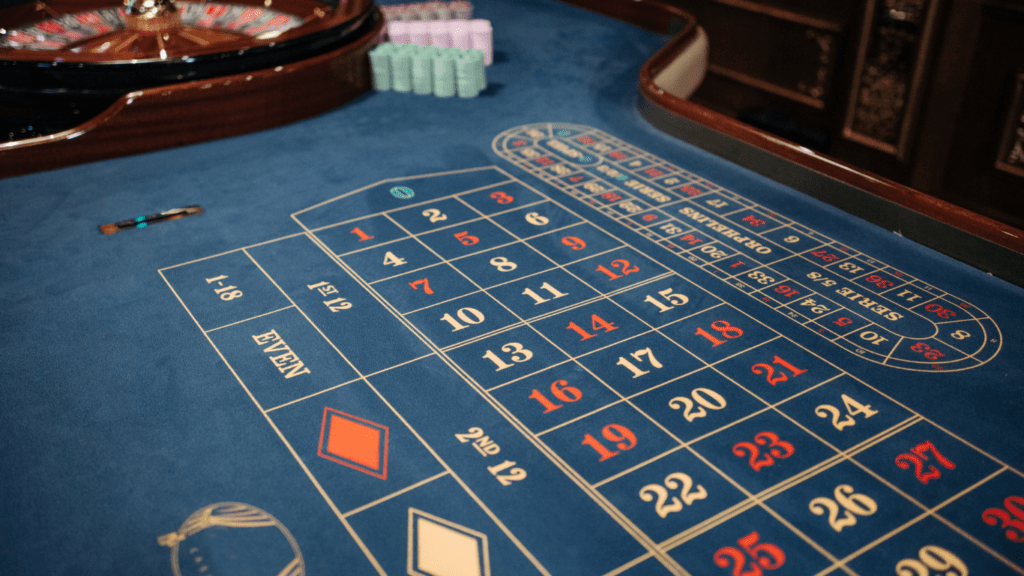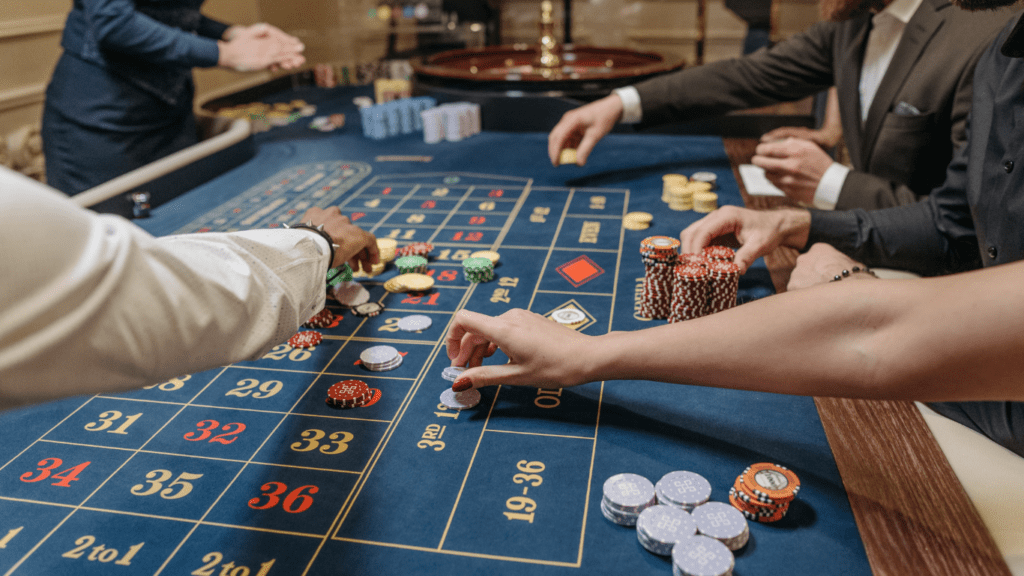Understanding the Basics
Comprehending the fundamentals of casino games like blackjack and roulette lays a strong foundation for successful play. An informed approach can significantly elevate the gaming experience.
House Edge and Odds
In any casino game, understanding the house edge is crucial. The house edge represents the casino’s statistical advantage over players. For instance, blackjack generally has a house edge of about 0.5% when players use basic strategy. In contrast, roulette’s house edge can be over 5% in American roulette due to the double zero. Knowing these odds helps in choosing games where the casino’s advantage is lower, thus improving potential outcomes.
Bankroll Management
Effective bankroll management is essential. It involves setting a budget for gambling sessions and sticking to it. Allocate specific amounts for each session and avoid chasing losses, which often leads to overspending. By managing the bankroll carefully, I ensure I can enjoy the gaming experience without financial strain. This disciplined approach helps sustain long-term play and maximizes enjoyment.
Secrets to Winning at Blackjack
Winning at blackjack involves blending skill and strategy. A thorough understanding of optimal play significantly elevates one’s chances against the house.
Perfecting Strategy Charts
- Strategy charts provide the roadmap to make optimal decisions in blackjack.
- These charts outline the mathematically best choices for any card combination.
- Memorizing these charts aids in minimizing the house edge, which is vital in maximizing potential winnings.
- Always hitting when the hand total is 8 and standing on totals of 17 or higher improves the likelihood of winning hands.
- Remember, sticking to the strategy charts is crucial for diminishing errors during play.
Card Counting Techniques
Card counting offers players an edge by tracking high and low cards remaining in the deck. This method requires rigorous practice and concentration, allowing players to adjust their bets when the deck is favorable. A common system, the Hi-Lo, assigns +1 to low cards and -1 to high cards, maintaining a running count to gauge deck favorability. While casinos often monitor for card counters, practicing discretion ensures this technique can supplement other strategies effectively.
Mastering Roulette

Roulette may appear to be a game of chance, but understanding certain strategies can tilt the odds slightly in your favor. By mastering specific techniques, you can make more informed bets and enhance your overall gaming experience.
Betting Systems: Martingale and Others
Betting systems offer structured ways to place wagers. Among them, the Martingale system is popular. It involves doubling your bet after every loss, allowing you to recover previous losses with a single win. Although this method carries significant risk, it can potentially be used in short playing sessions.
Other systems, like the Fibonacci or Labouchere, provide alternative approaches by structuring incremental betting patterns based on sequences or cancellations. These strategies focus on mitigating losses over time and aim to capitalize on winning streaks. Each system has its risks and requires a disciplined approach to bankroll management.
Understanding Wheel and Number Biases
Every roulette wheel is a unique mechanical device, and even small imperfections can lead to biases. Number biases occur when certain numbers appear more frequently than others due to imperfections in the wheel, such as uneven wear or subtle manufacturing flaws.
By observing the wheel over extended periods, players may identify these biases. For instance, if a specific sector of the wheel hits more often, it could suggest a bias worth exploiting. Detecting such patterns requires patience and diligence, but recognizing biases gives an edge that few players capitalize on.
Tips for Winning at Poker
Poker offers thrilling opportunities to blend luck with skill, creating a dynamic gaming experience. There are strategies that can boost your chances if they’re used effectively.
Reading Opponents
Observing opponents is crucial for success in poker. Like:
- facial expressions
- body language
- betting pattern
provide valuable information. A player may reveal stress or confidence through subtle gestures like fidgeting or stillness. Consistent betting can indicate a strong hand, while irregular bets might suggest uncertainty. Identifying these signals helps determine opponents’ potential hands, allowing better decision-making.
Bluffing Tactics
Bluffing is a fundamental skill in poker. Effective bluffing involves projecting confidence when holding weak cards. A well-timed bluff can convince opponents to fold stronger hands. Considering opponents’ playing styles and adjusting bluffs accordingly ensures success. Frequent bluffers might face disbelief, while occasional ones have greater credibility. It’s essential to vary bluffing tactics based on the opponents and table dynamics to maintain unpredictability.
Leveraging Slot Machines
Slot machines offer entertainment and potential for big wins. Knowing how to pick and play the right machines maximizes your chances.
Payout Percentages
Understanding payout percentages is crucial when choosing slot machines. The payout percentage indicates the average return to players over time. For example, a machine with a 95% payout percentage statistically returns $95 for every $100 wagered. Machines with higher payouts generally provide better odds, so aiming for those is beneficial. Always check the machine’s information panel for its payout, or research online for popular machines with the best returns.
Choosing the Right Machines
Selecting the right slot machine involves more than just finding high payout percentages. Look for machines with lower denominations, as they often increase playtime, allowing more chances to hit winning combinations. Some machines offer progressive jackpots, which grow with each bet, providing the potential for significant rewards. However, those may come with lower base payouts, so it balances risk and reward. Opt for games you find enjoyable, as longer play translates into more opportunities to win.



 Founder & CEO
Williamsonn Grajedaral is the founder and driving force behind Dice Gamblers Deal, a platform dedicated to providing expert strategies, in-depth analysis, and essential updates on blackjack, card games, slot machines, and roulette. With over a decade of experience in the gambling industry, Williamsonn’s passion for gaming and his keen understanding of table game mechanics led him to create a space where players could not only learn but thrive in the world of casino games. As the founder, he sets the tone for the company, shaping its mission to provide players with the knowledge they need to make strategic decisions and increase their odds of winning. Under his leadership, Dice Gamblers Deal has grown into a trusted resource for both novice and experienced players, offering expert tips, comprehensive guides, and the latest gambling trends. Williamsonn’s dedication to the community ensures that Dice Gamblers Deal remains at the forefront of the gaming world.
Founder & CEO
Williamsonn Grajedaral is the founder and driving force behind Dice Gamblers Deal, a platform dedicated to providing expert strategies, in-depth analysis, and essential updates on blackjack, card games, slot machines, and roulette. With over a decade of experience in the gambling industry, Williamsonn’s passion for gaming and his keen understanding of table game mechanics led him to create a space where players could not only learn but thrive in the world of casino games. As the founder, he sets the tone for the company, shaping its mission to provide players with the knowledge they need to make strategic decisions and increase their odds of winning. Under his leadership, Dice Gamblers Deal has grown into a trusted resource for both novice and experienced players, offering expert tips, comprehensive guides, and the latest gambling trends. Williamsonn’s dedication to the community ensures that Dice Gamblers Deal remains at the forefront of the gaming world.
